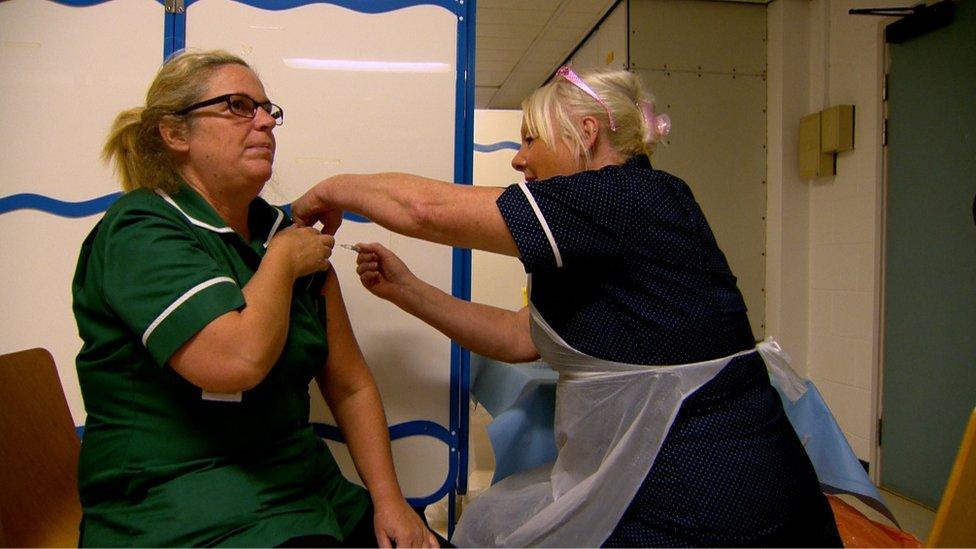Parents urge 'get flu jab' after son, 9, dies
- Published

The hashtag #ThumbsUpForCoby is being supported by the local NHS
The parents and best friend of a nine-year-old boy who died from flu are calling on people to have their children vaccinated.
Coby Simons, from Whipton, near Exeter, died in January after feeling "groggy" and "sleepy" in the days before.
His parents, Louise and Jamie, have helped to design a postcard which uses the hashtag #ThumbsUpForCoby to raise awareness.
The campaign has the support of local NHS bosses.
Coby, described by his parents as "funny, very active and really healthy" died on 24 January, hours after being admitted into hospital for observation.
The family GP diagnosed him with flu two days before.

Coby's parents said such a situation should not "happen to anyone"
He was one of 16 children in England who died from flu during the last winter season.
In the South West, about 60% of children who are eligible had a flu jab at school.
Coby's mother Louise said: "I didn't think it was that and didn't realise how many children have passed away from flu.
"We don't want this happening to anyone, so we would urge people to get the flu jab."
Coby's best friend, Josh, added that he missed his friend who used to "help me a lot with my maths every single week".
A flu vaccine injection is free on the NHS to groups of people who are at particular risk, external.
The NEW Devon NHS Clinical Commissioning Group has been helping spread the message, using the hashtag on social media.

What is flu?
Flu (influenza) is a common infectious viral illness spread by coughs and sneezes
It can be caught all year round, but is especially common in winter, which is why it is also known as seasonal flu
Symptoms include a high temperature of 38C (100.4F) or above; tiredness and weakness; a headache; aches and pains; a dry, chesty cough
People can usually manage symptoms themselves and there is no need to see a GP. Most people usually feel better within a week
However, people in some groups should consider seeing a GP if they are at risk of becoming more seriously ill. This includes anyone who is aged 65 or over, pregnant; has a lung, heart, kidney, liver or neurological disease; has a weakened immune system; or is diabetic
Source: NHS
- Published12 February 2018

- Published11 October 2018
